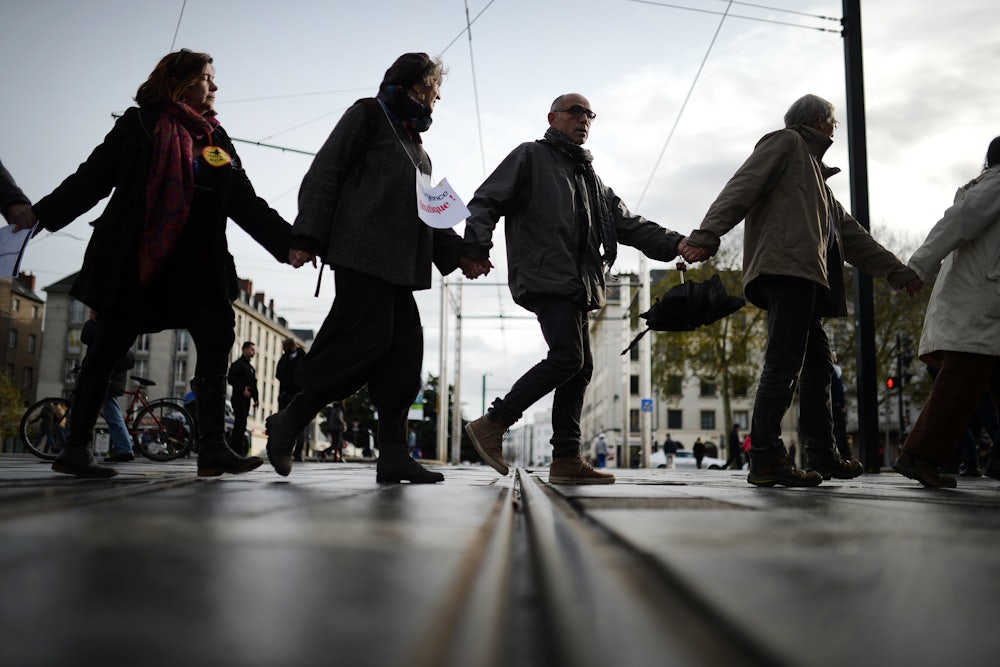Climate science has been instrumental in developing the ambitious carbon emission reduction targets negotiated at the recent climate talks in Paris. At the same time, the kinds of actions needed to avert the worst effects of climate change demand new ways of engaging that go far beyond science and formal diplomacy.
This shift from a focus on the technical to the social is not unexpected. After the particularly challenging climate talks of 2009, science and technology studies expert Sheila Jasanoff concluded a Science article by reflecting that the scientific community “has demonstrated it can learn and change in its methods of representing science to scientists. That ingenuity should now be directed toward building relationships of trust and respect with the global citizens whose future climate science has undertaken to predict and reshape.“
In other words, while climate science has advanced greatly, the human-to-human piece still needs attention.
Indeed, over the past several years, it has become clear it is not enough to rely on scientific and technical information, expertise, and authority alone when it comes to transformative social action on climate change. Instead, many people are working together to affect change outside the realm of science, often in seemingly messy and chaotic ways.
Shifting climate work into this kind of relational mode—one centered on people and how we relate with each other and our environment—is a sea change in how we deal with an issue traditionally steeped in scientific intricacy.
Working with conflict and emotion
We are exposed daily to information about how climate change is altering landscapes we love, impacting people who don’t have the resources they need to adapt, and harming many species.
The attendant grief and anxiety can be overwhelming for many, including (and maybe particularly) scientific and technical experts.
Learning to effectively engage in this emotionally laden environment calls for significant subjective and emotional skills, such as the ability to deal with anger and anxiety—whether our own or others. Yet by training scientists tend to value objectivity and facts, rather than subjective views and feelings.
In addition, some environmental challenges are increasingly taking on characteristics of intractable conflicts, which may remain unresolved despite good faith efforts.
In the case of climate change, conflicts ranging from debates over how to lower emissions to denialism are obvious and ongoing—the science community has often approached them as something to be defeated or ignored.
While some people love it and others hate it, conflict is often an indicator that something important is happening; we generally don’t fight about things we don’t care about.
Working with conflict is a challenging proposition, in part because while it manifests in interactions with others, much of the real effort comes in dealing with our own internal conflicts.
However, beginning to accept and even value conflict as a necessary part of large-scale societal transformation has the potential to generate new approaches to climate change engagement. For example, understanding that in some cases denial by another person is protective may lead to new approaches to engagement.
As we connect more deeply with conflict, we may come to see it not as a flame to be fanned or put out, but as a resource.
A relational approach to climate change
Indeed, because of the emotion and conflict involved, the concept of a relational approach is one that offers a great deal of promise in the climate change arena. It is, however, vastly underexplored.
Relationship-centered approaches have been taken up in law, medicine, and psychology.
A common thread among these fields is a shift from expert-driven to more collaborative modes of working together. Navigating the personal and emotional elements of this kind of work asks quite a bit more of practitioners than subject-matter expertise.
In medicine, for example, relationship-centered care is a framework examining how relationships—between patients and clinicians, among clinicians, and even with broader communities—impact health care. It recognizes that care may go well beyond technical competency.
This kind of framework can demonstrate how a relational approach is different from more colloquial understandings of relationships; it can be a way to intentionally and transparently attend to conflict and power dynamics as they arise.
Although this is a simplified view of relational work, many would argue that an emphasis on emergent and transformative properties of relationships has been revolutionary. And one of the key challenges, and opportunities, of a relationship-centered approach to climate work is that we truly have no idea what the outcomes will be.
We have long tried to motivate action around climate change by decreasing scientific uncertainty, so introducing social uncertainty feels risky. At the same time it can be a relief because, in working together, nobody has to have the answer.
Learning to be comfortable with discomfort
A relational approach to climate change may sound basic to some, and complicated to others. In either case, it can be useful to know there is evidence that skillful relational capacity can be taught and learned.
The medical and legal communities have been developing relationship-centered training for years.
It is clear that relational skills and capacities like conflict resolution, empathy, and compassion can be enhanced through practices including active listening and self-reflection. Although it may seem an odd fit, climate change invites ability to work together in new ways that include acknowledging and working with the strong emotions involved.
With a relationship-centered approach, climate change issues become less about particular solutions, and more about transforming how we work together. It is both risky and revolutionary in that it asks us to take a giant leap into trusting not just scientific information, but each other.
Adapted from: Kearns, F.R. 2015. A relational approach to climate change: Working with people and conflict. In Climate Change Across the Curriculum, edited by Eric Fretz. Lexington Books. Available December 2015.
![]()
This article was originally published on The Conversation. Read the original article.
